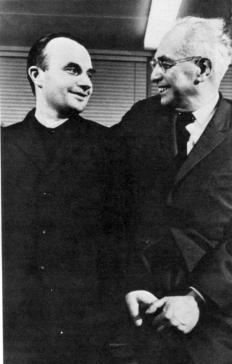In the 1920 to 1930s, Soviet psychologists developed an original research program, which they themselves characterized as "cultural-historical" psychology—an approach that examined individual cognition in its socio-cultural context. Central to this development was the work of LS Vygotsky, AR Luria, and AN Leontiev, who believed that higher processes of consciousness originate in the individual’s relations with the social world. Their psychology emerged at the intersection of multiple disciplines that thrived in the vibrant intellectual atmosphere of the Russian Revolution, and it developed in response to new social needs.
Ludmila Hyman's project focused on the role of concrete experience in Vygotsky’s, Luria’s, and Leontiev’s scientific reasoning. Their contributions present an interesting interplay of theory and praxis. Armed with a vision of psychology as both a social and a human science, Vygotsky, Luria, and Leontiev created a new experimental framework that enabled psychologists to study the human mind embedded in concrete cultural situations. Thereby they instituted new techniques of scientific observation, which became the hallmark of the Soviet school of psychology and resulted in substantial achievements in numerous fields, including neuropsychology, developmental psychology, psycholinguistics, sociology, and philosophy of mind; moreover they pioneered the comparative study of culture-specific forms of thinking and the study of changes in human consciousness associated with rapid cultural and historical transformations.
Hyman investigated how the historical conditions of the Soviet psychologists’ life and work contributed to their new understanding of social reality and the social and human sciences.

